On Friday (25), around 50 protesters gathered in front of the Federal Council of Medicine (CFM, in Portuguese) building in Brasília, Brazil’s capital, against Resolution No. 2,427/2025, published by the organization on April 16. The rule raises the minimum age for hormone therapy for trans people from 16 to 18, bans pubertal blockade and raises the minimum age for gender-affirming surgery from 18 to 21.
The protesters call the measure “transphobic” and “authoritarian”, stressing that it was published without public consultation and contradicts scientific evidence on which care protocols are based. Around 150 health and social care organizations and trans movements signed a joint statement rejecting the decision.
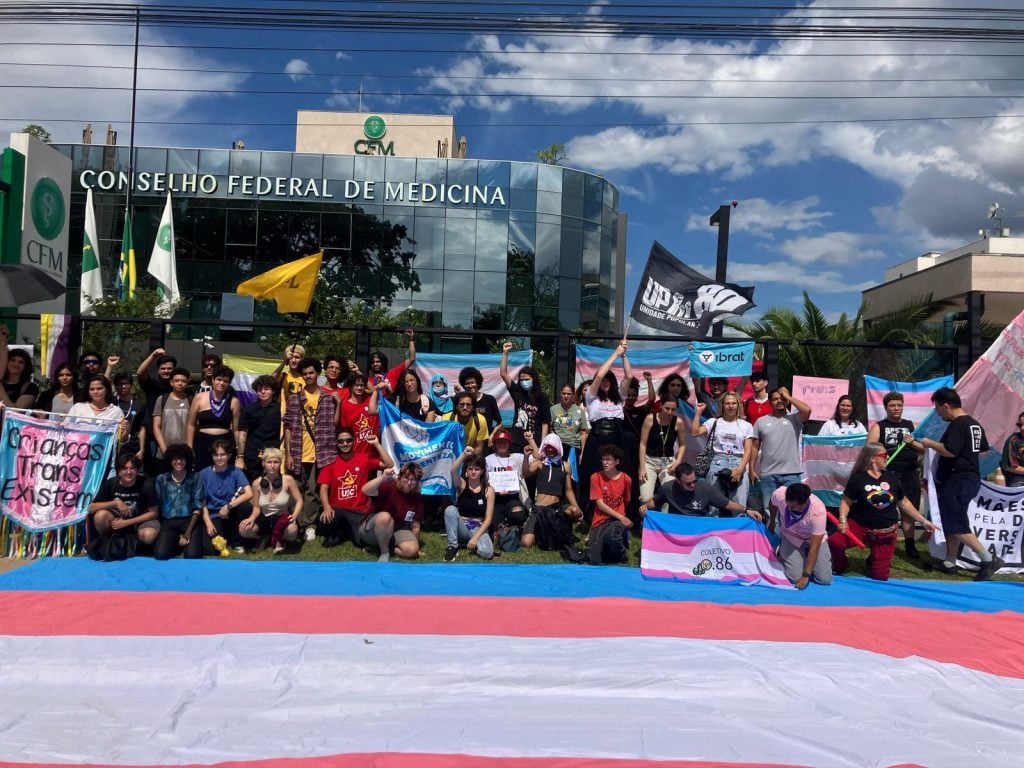
The demonstration was organized by the Central Directory of the University of Brasilia (UnB) Students, UnB Trans Collective, Brazilian Institute of Transmasculinities (Ibrat, in Portuguese), National Association of Transvestites and Transsexuals (Antra), AntraJus, Correnteza, Popular Unity, Juntos Collective, PCBR and Mis Manes Collective.
Bruna Benevides, the president of Antra, says the resolution violates human rights: “We are mobilizing efforts so that our community is respected in its dignity and citizenship.”
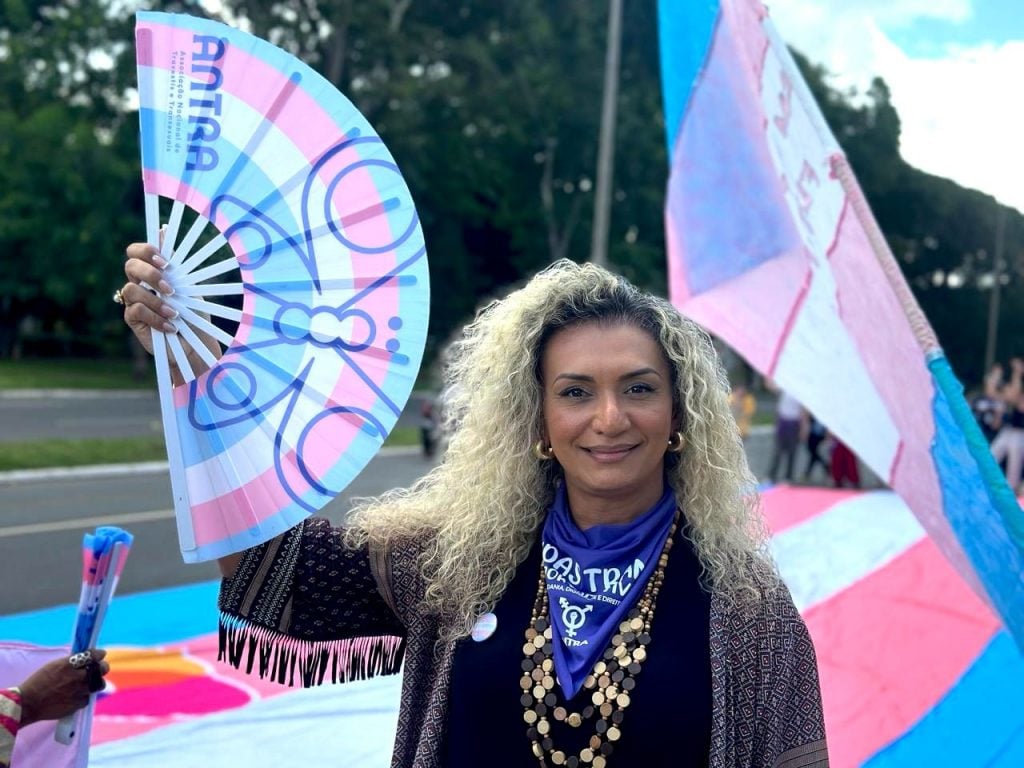
Bruna Benevides is the president of Brazil’s Association of Transvestites and Transsexuals. Photo: Camila Araujo | WhatsApp Image 2025-04-25 at 20.42.47
Doctors who work with trans teenagers also criticize the measure. Cecília Vianna, a gynecologist at Adolescentro, in Brazil’s Federal District, points out that the decision was imposed without discussion with civil society, unlike the 2019 resolution, which was built with social participation.
The resolution prevents trans adolescents from having access to pubertal blockade, a treatment that prevents the development of unwanted gender-related characteristics during puberty, such as beards and breasts. Experts argue that postponing hormone therapy increases mental suffering and the risk of trans teenagers ending up self-medicating.
Luiz Fernando Marques, a doctor at Adolescentro, explains that the medication process is done in agreement with family members, and highlights the risks of banning the procedure: “This can cause irreversible damage. In the hundreds of cases we’ve monitored, no patient has ever regretted it.”
District deputy Fábio Félix (Socialism and Freedom Party) said: “Nobody becomes trans, nobody becomes LGBT when they turn 18 or 21. This is part of our identity, our social construction. The Council of Medicine ignores science and the qualified listening of movements, civil society and universities.”
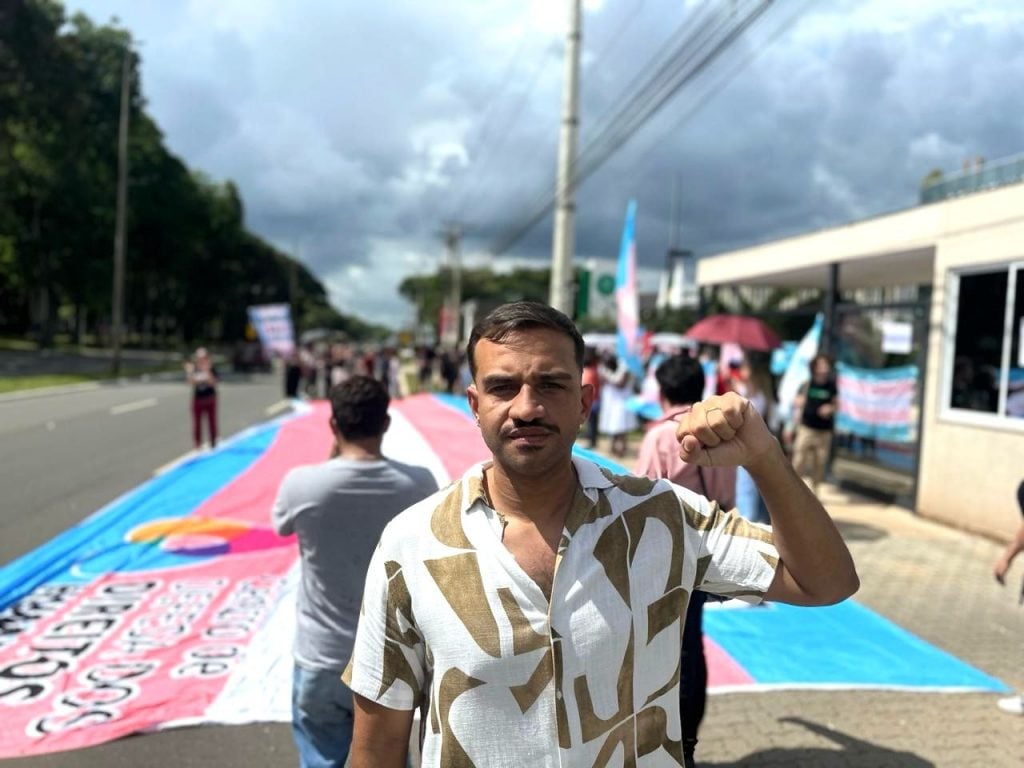
On the same day that the CFM resolution was published, the US government denied legal recognition of the gender identity of Brazilian federal deputy Erika Hilton (Socialism and Freedom Party) and the UK Supreme Court ruled that the legal definition of “woman” excludes trans women, in a case with far-reaching consequences for the application of equality laws in the country.
Bruna Benevides, from Antra, says the measure is part of a “global antitrans agenda”. Antra and Ibrat filed ADI 7.806 with the Supreme Court against what they classify as a “transphobic and denialist resolution.”
“The CFM ignores discussions with the affected population,” Benevides criticizes. “This violent measure forces our community to self-medicate, exposing people to risks without proper professional monitoring.”
Kaleb Salgado, coordinator at the Ibrat-Federal District, reinforces: “This resolution disregards decades of medical consensus on transsexualization processes, creating barriers that lead young people to self-medication and clandestinity. What we need is safe access to specialized treatments.”
Maktus Fabiano, general coordinator of the DCE and an activist with Juntos Collective, contrasts the decision with recent advances, such as quotas for trans people at the University of Brasilia: “In 2025, it is unacceptable for Brazil’s Council of Medicine to impose disproportionate requirements, such as reports and the minimum age for surgeries, when these requirements do not apply to non-trans procedures. It pathologizes identities and violates autonomy over our bodies.”
Representing Mothers for Diversity, Rejane Costa recounted the impact of bureaucracy on the life of her son, who was only able to start his hormonal transition at 18, six years after his self-identification as a male: “If he had had access to treatment at the right time, he wouldn’t have suffered so much. The new resolution, under the pretext of ‘protection’, denies scientific evidence that early recognition of identity prevents mental illnesses. It’s institutional transphobia.”
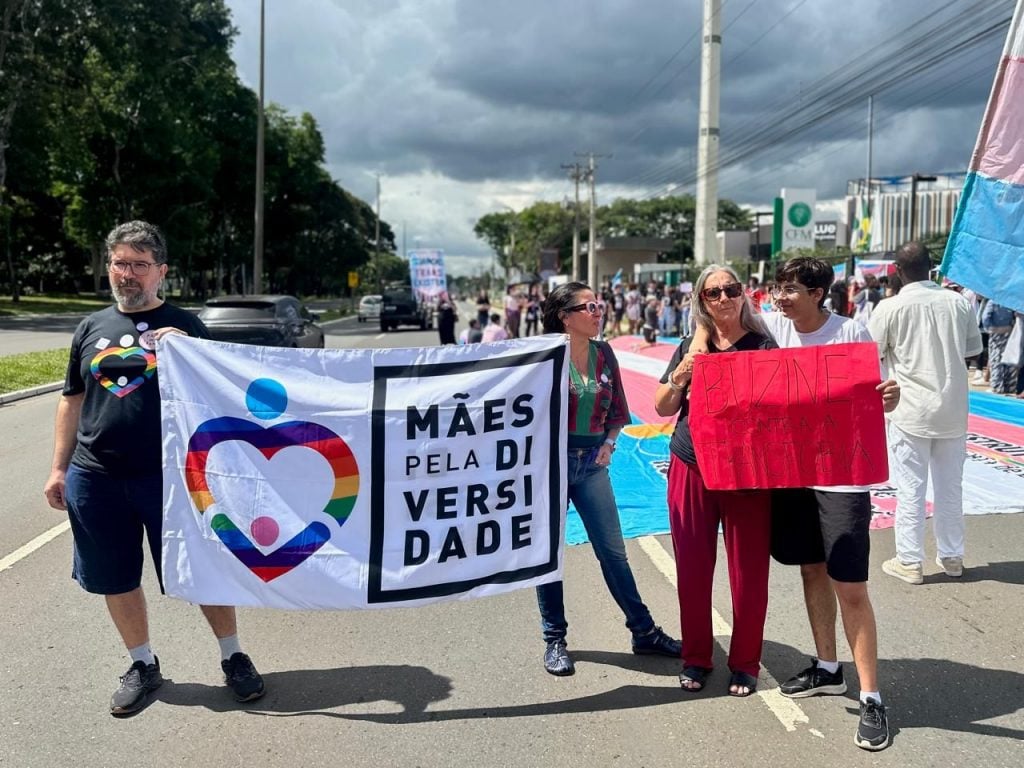
To tackle the so-called “normative vulnerability”, doctor Cecília Vianna argues that Brazil’s Ministry of Health should issue a resolution explicitly affirming trans rights. “The ministry’s omission opens the door to authoritarian measures. There should already be a national protocol establishing clear guidelines for this kind of care assistance,” she said.
While this federal regulation does not exist in the country, professionals and patients can resort to international documents such as the WPATH Standards of Care for Transgender People or the São Paulo municipal protocol as references for adequate care.
The author of the controversial CFM resolution is gynecologist Raphael Câmara Medeiros Parente, known for his conservative stances. Parente was the rapporteur of the rule that banned fetal asystole in legal abortions after 22 weeks – a measure suspended by the Supreme Court, but which later inspired the so-called Anti-abortion bill in cases of rape. He was elected councilor for Rio de Janeiro and publicly defended sexual abstinence as a contraceptive method for teenagers. The doctor was a secretary in the Ministry of Health during the Bolsonaro government.
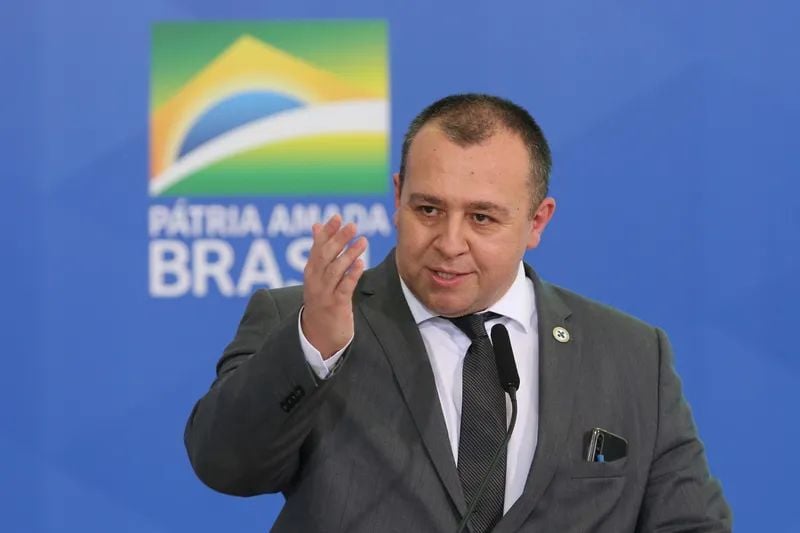
The current CFM administration (until 2029) includes other controversial members: doctors who promoted the use of chloroquine to treat Covid-19 during the pandemic and a councilor who celebrated the January 8 coup attempt. In an official statement, the Council of Medicine claims that the new resolution seeks to “update rules to improve medical care.”




